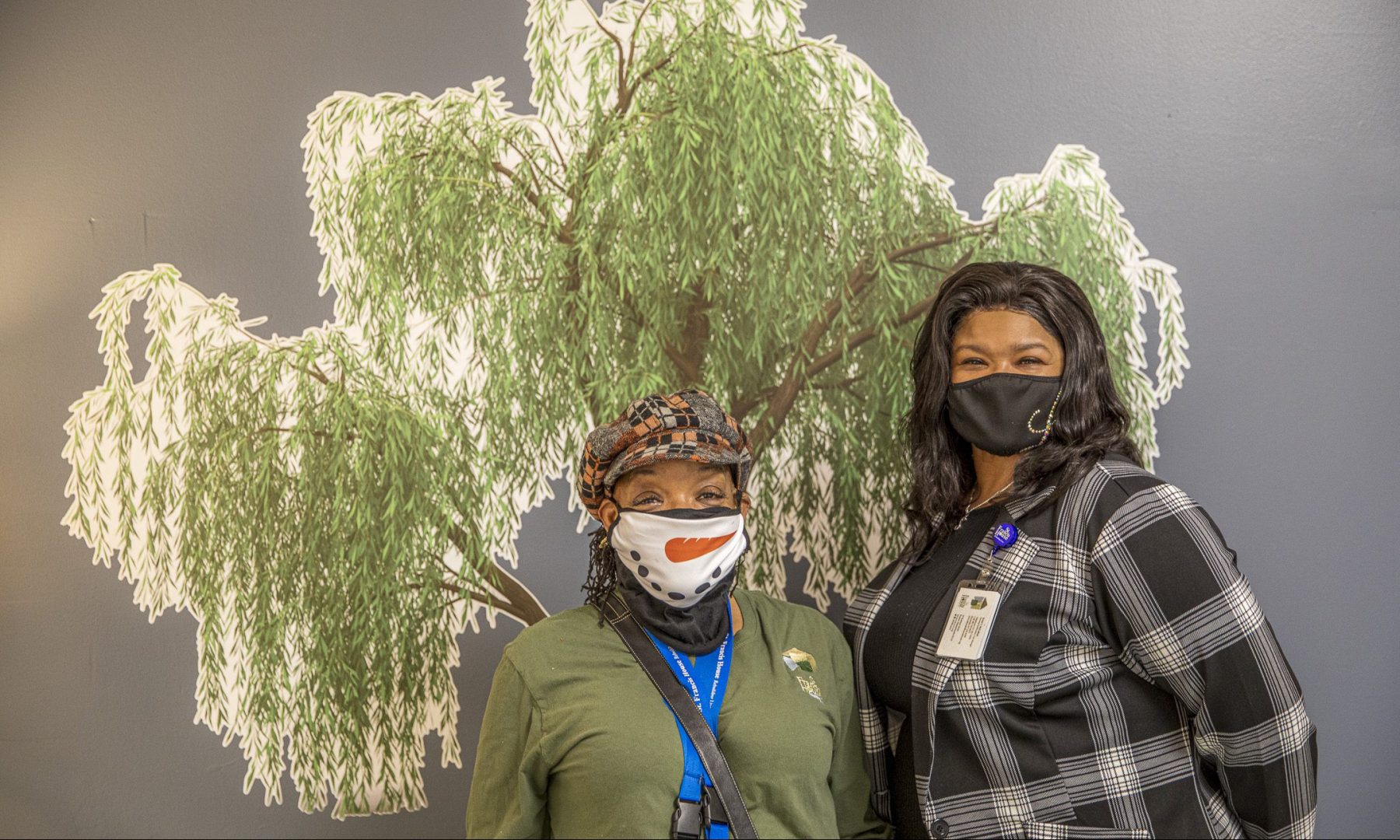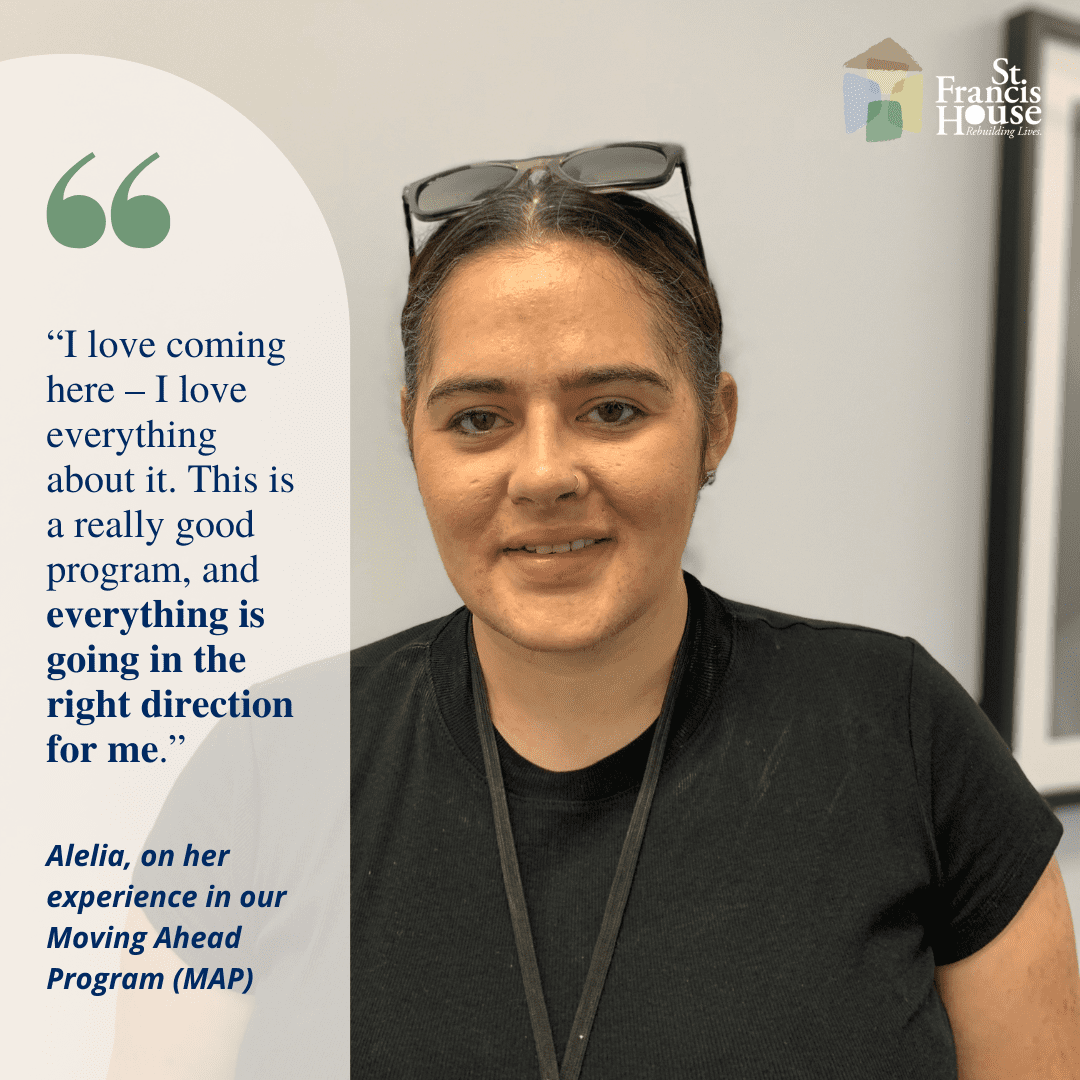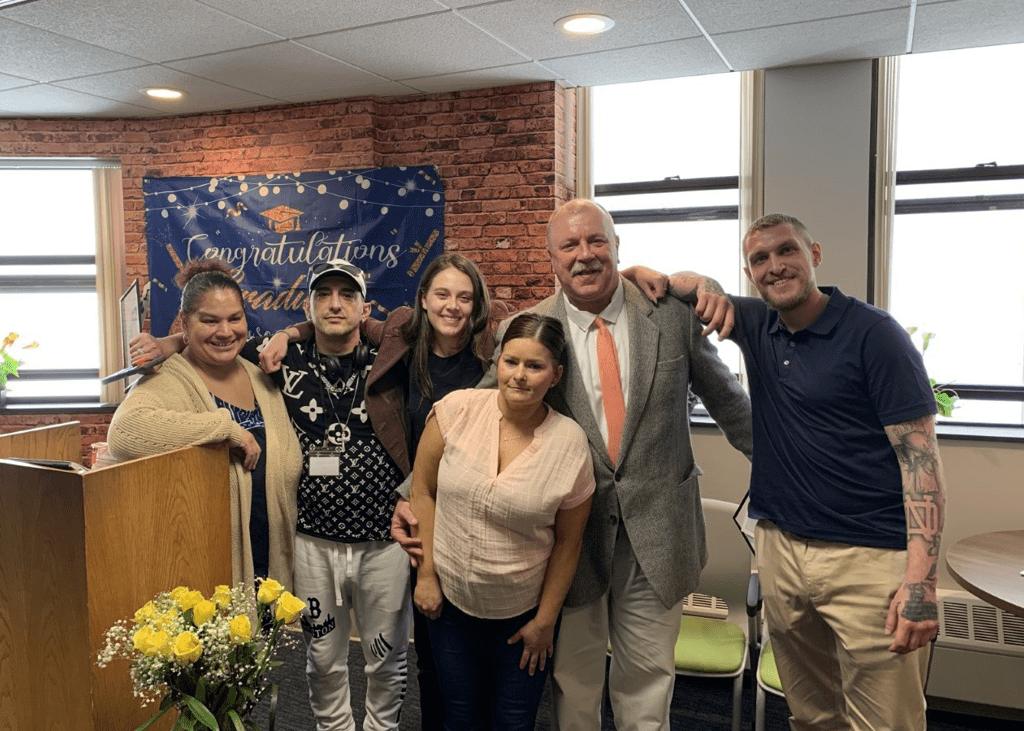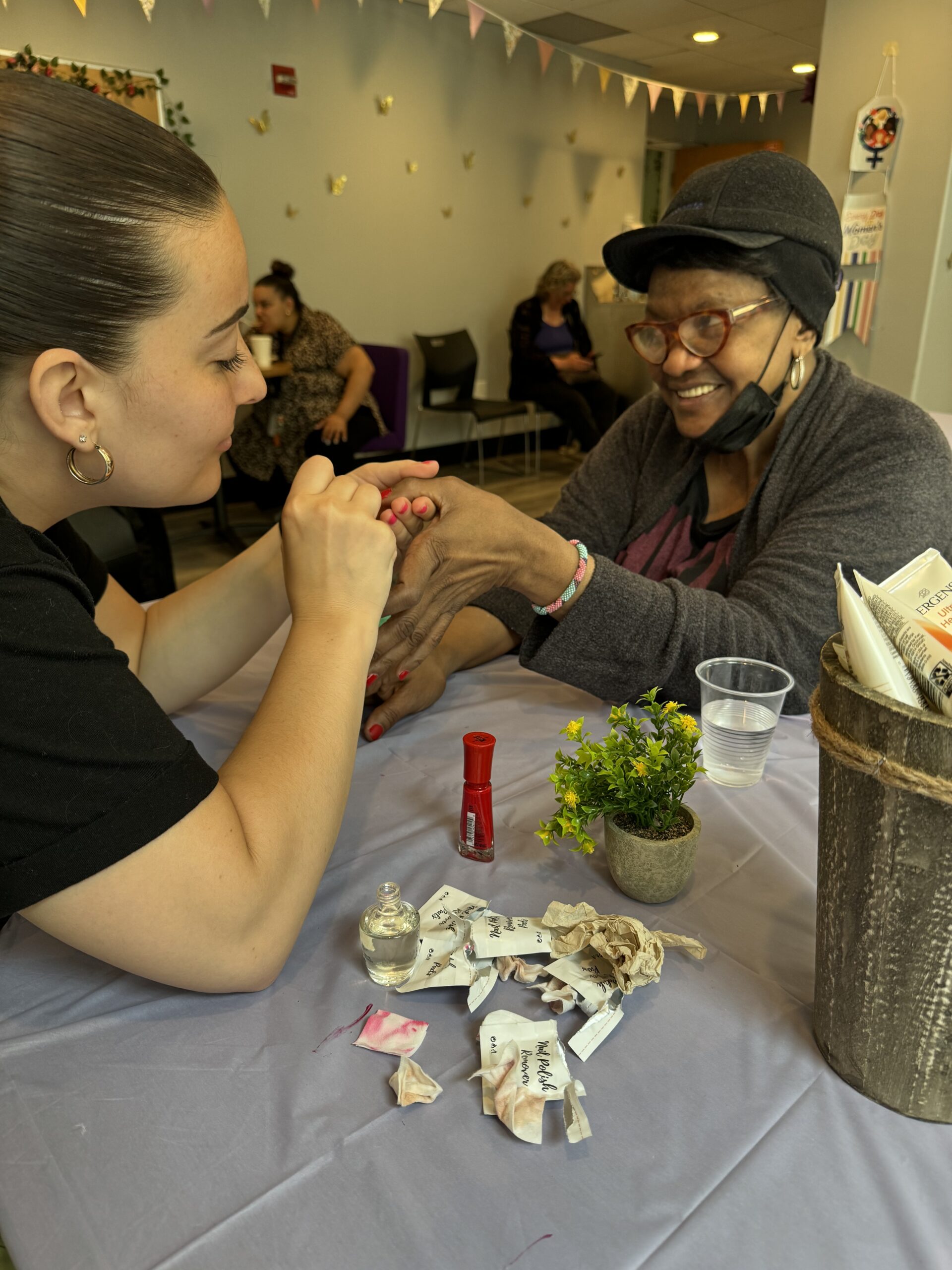The willow tree has a special place in many cultural traditions. With a strong well-rooted trunk, and drooping, swaying branches, the willow is both strong in the face of adversity and resilient when weathering the inevitable storms. And, if you cut off a branch and replant it, it will grow a new tree. Resilience. Hope. New life. These are the principles that have guided our journey to open the Willows at Woods Shelter for women.
The video conversation that President and CEO Karen LaFrazia and I had recently about the St. Francis House response to the inhumane conditions at the Mass & Cass encampments highlights how deeply too many people have fallen through the cracks in our homeless and treatment systems of care. In the last year, I have walked through the encampments there on many occasions, seeing the pain and struggle firsthand. I’ve sat with men who, after leaving the area for another part of the city, wept openly at the idea of ever going back. I’ve seen the bruises on women’s bodies and the terror in their eyes. I’ve seen fear and despair. And, yet, amidst all of it I’ve witnessed selfless acts of kindness—from outreach workers, certainly, but also from the very people living on the streets. In these ways, in this desolate concrete landscape dotted by colorful but tattered tents, I’ve seen a lot of willow trees swaying in the wind, looking for any way that they can imagine tomorrow as a better day.
In late fall of 2021, the City of Boston, under Mayor Wu’s leadership, made a commitment to clearing the encampments by providing every person living there an opportunity for another place to stay. To make this endeavor viable, multiple new crisis shelters and transitional housing sites were set up throughout the city, with spaces, services, policies and practices that were specifically designed to meet the needs of people who had, up until then, chosen to stay on the streets rather than in a traditional homeless shelter. St. Francis House was implored to take a lead in the effort. Not long after wrapping up our last sheltering project—a successful shelter operation at the Charles River Inn in the winter/spring of 2020-2021—we created and opened a new type of shelter to accommodate the women who had been living in the encampments. These women have incredibly complex lives—actively using drugs, living with multiple complicated medical and mental health conditions, struggling with trauma and daily re-traumatization, and experiencing exploitation and abuse in their life on the streets.
We had a lot of heart and clear commitment from our leadership. Staff raised their hands to do extra work to ensure we could make it happen. We had collaboration from the Boston Public Health Commission and Boston Healthcare for the Homeless. But, we had very little time and human resource to actually pull it off successfully. Following a whirlwind of activity, planning, and some honest-to-goodness sweat, we prepped the site. Three days before Christmas, we pulled the staff together to see it for the first time and participate in a whirlwind pre-opening training. Two days after Christmas, we opened to welcome the first of our 24 women. As you will hear and see in detail in the video, our ‘harm reduction” approach to sheltering emphasizes safety and dignity, flexibility and autonomy, support and connection. And it is working.
By the city deadline in mid-January, every tent was cleared and the new sites, including the Willows, were filled. Our new shelter director, Nikki Sheldon, made sure that every woman would feel welcomed and at home, taking note of every way reasonable to ensure that their new place was warm and comfortable, stable and consistent, and fully of support and care.
Since then, we have seen many of our women gradually transform from being desperately hungry, deeply exhausted, and highly defensive to finding ways to contribute to the shelter, calling their new place “home”, and seeking out connections to care and treatment. Many have already started treatment for their substance use disorder. Some have already moved into housing. But the biggest indicator of success in our first 3 months is that our guests are staying long enough to take a breath, find their strengths and be reminded of their value. These women—these swaying, bending willow trees—are putting down new roots. Sometimes very tentatively, testing the soil with trepidation, and other times firmly, with conviction. They are showing how resilient they can be, even as they continue to struggle with very complicated lives, day by day. These women have weathered — and still find themselves in the centers of — unimaginable storms. And we are there for and with them, no matter where they have been, where they are today, or whatever may come next.
Written by Andrea Farina, Vice President of Program Strategy & Initiatives



